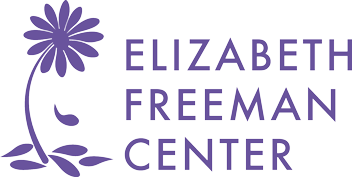If you’re worried a friend is being abused
If you know friends or relatives who you think may be victims of intimate partner violence or abuse, it is important to understand what kinds of things you can do and say to support them.
Potential signs of abuse include:
- If your friend seems afraid or isolated
- If your friend explains away bruises or dresses as if to conceal injuries
- If your friend’s partner exhibits bullying or possessive behavior
- If your friend seems uncharacteristically depressed or self-blaming
How to help:
- Gently express concern.
- Believe your friend. It takes a great deal of strength and courage for someone to talk with you about the situation. Give your friend your undivided attention while they talk.
- Be supportive. Let your friend know that the abuse is not their fault, that they cannot change the abuser’s behavior, that they are not alone, and that there is help available. Abusers often systematically work to break down a victim’s self-esteem. Emphasize your friend’s strengths and courage to counteract this campaign of lies.
- Be non-judgmental. Respect your friend’s decisions. There are many reasons why victims stay in abusive relationships, including economic considerations, concerns for children, and issues of safety (the most dangerous time for victims is when they take steps to leave the relationship). A victim may leave and return many times. Do not shame or guilt your friend. The important thing is to listen and believe your friend, and let your friend know you are there to help whenever needed.
- Do NOT confront the abuser without your friend’s permission.
- Remind your friend that help is available. Elizabeth Freeman Center’s hotline is available 24/7. Call with questions about yourself or a loved one, for support, to discuss safety planning, or just to talk with someone about your concerns: (866) 401-2425.
If a friend has been sexually assaulted
When people are raped or sexually assaulted, their world is turned upside down. Every person responds differently – some become really depressed while others become very angry, some become detached, others afraid. All emotions are fair responses to a rape or sexual assault.
How to help:
- Let your friend know right away that you care and want to help.
- Be a good listener. Let your friend decide what and when they feel comfortable telling you about the assault and its impact. Don’t press for details or ask a lot of questions. Respect your friend’s privacy and confidentiality.
- Believe your friend. It takes courage to talk about a sexual assault with other people. Many victims remain silent because they feel ashamed and/or they fear that they will be disbelieved or blamed if they tell other people about what happened to them.
- Don’t blame the victim. No one asks to be raped.
- Encourage your friend to make their own decisions and choices. This is one way for a sexual assault victim to regain a sense of personal power and control. For example, let your friend decide whether or not to notify the police or contact a rape crisis center (if your friend does, offer to accompany your friend).
- Do what you can to assist your friend in getting information about the available options so your friend can make informed decisions. Elizabeth Freeman Center’s hotline is available 24/7 with free and confidential help, at (866) 401-2425.
- Be patient and understanding. Sometimes friends and family members expect sexual assault victims to be “over it” in a few weeks. Understand that the pain the victim feels, and the symptoms, may last for a long time.
- Take care of yourself, too. If someone you know is raped, you may feel upset. Even if your friend doesn’t want to talk to a counselor, you can get support for yourself. Talking to a counselor can help you understand your own reactions and what you and your friend are going through. A counselor can also give you ideas about how to help your friend.
(with thanks to http://www.911rape.org/help-a-friend)
